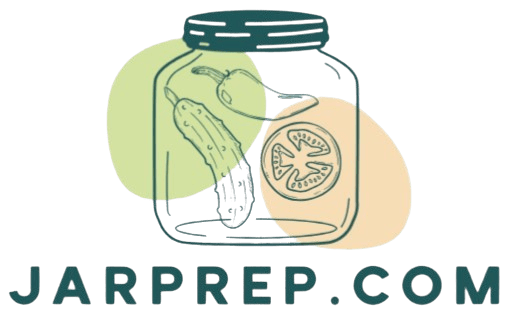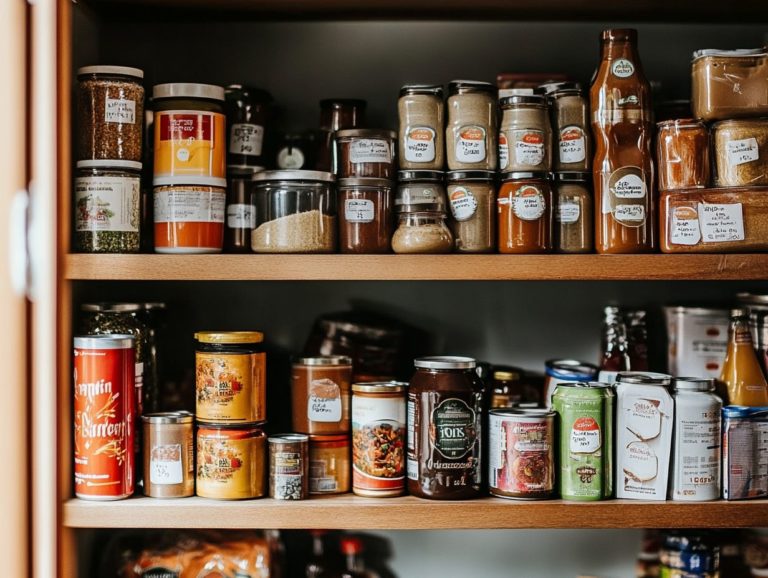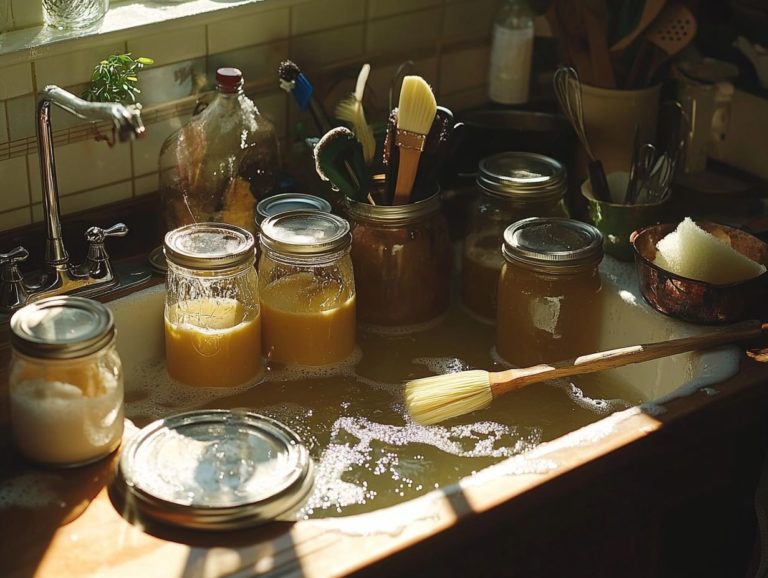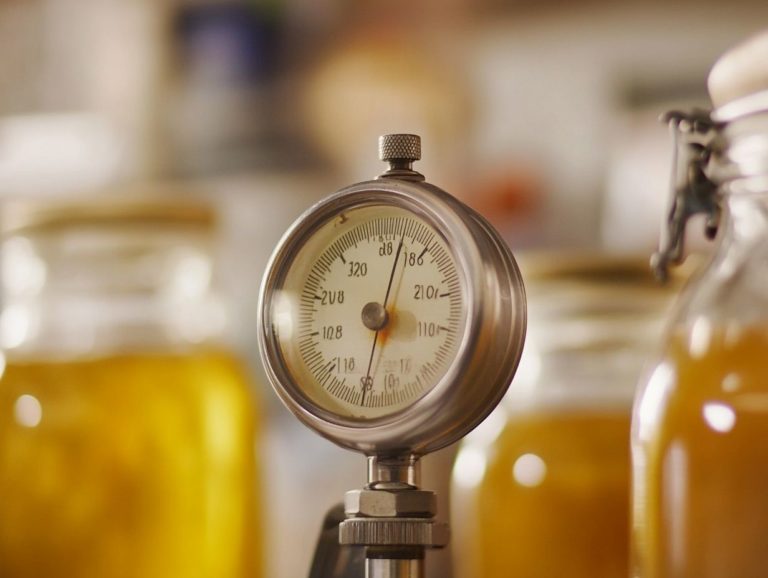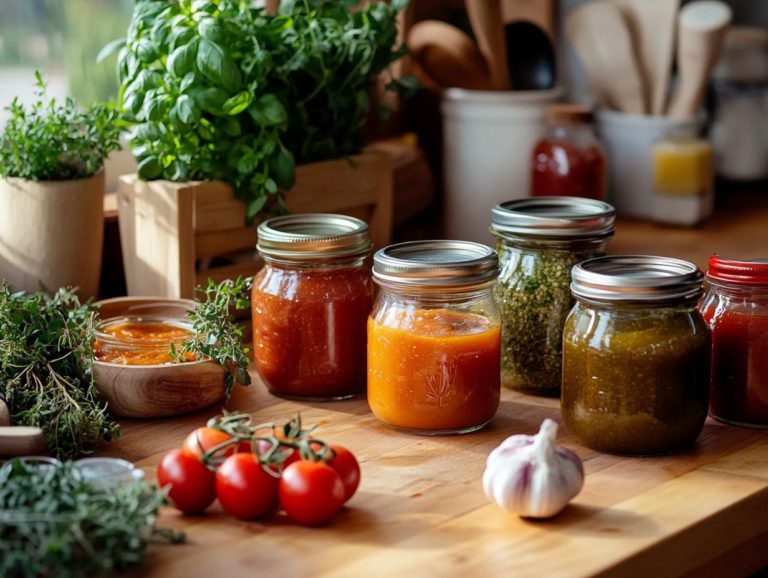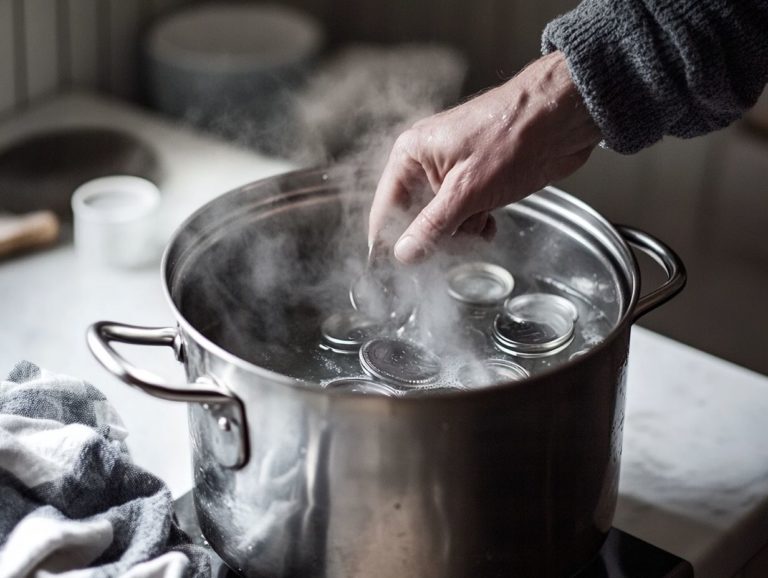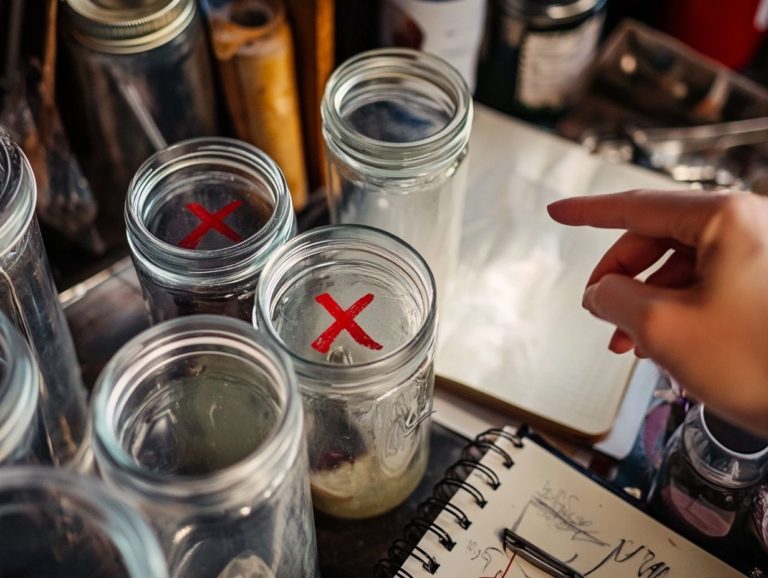How to Make Canned Goods Last Longer?
Canned goods are a kitchen staple, offering convenience and impressive longevity. But how long can you realistically expect them to last?
This guide delves into key factors influencing the shelf life of canned goods. It equips you with tips on optimal storage practices and safe consumption methods.
You ll discover effective strategies to extend their longevity and explore alternative food preservation techniques. Whether you re a seasoned canner or just beginning your journey, you ll find practical insights to maximize your pantry staples.
Contents
- Key Takeaways:
- Understanding Shelf Life of Canned Goods
- Optimizing Storage Conditions
- Using Canned Goods Safely
- Extending Shelf Life of Canned Goods
- Alternatives to Canned Goods
- Frequently Asked Questions
- What are the best ways to make canned goods last longer?
- How can I determine the expiration date of canned goods?
- Does the type of canned goods affect its shelf life?
- Is it safe to eat canned goods past their expiration date?
- How can I prevent spoilage in canned goods?
- What are some signs that canned goods have gone bad?
Key Takeaways:
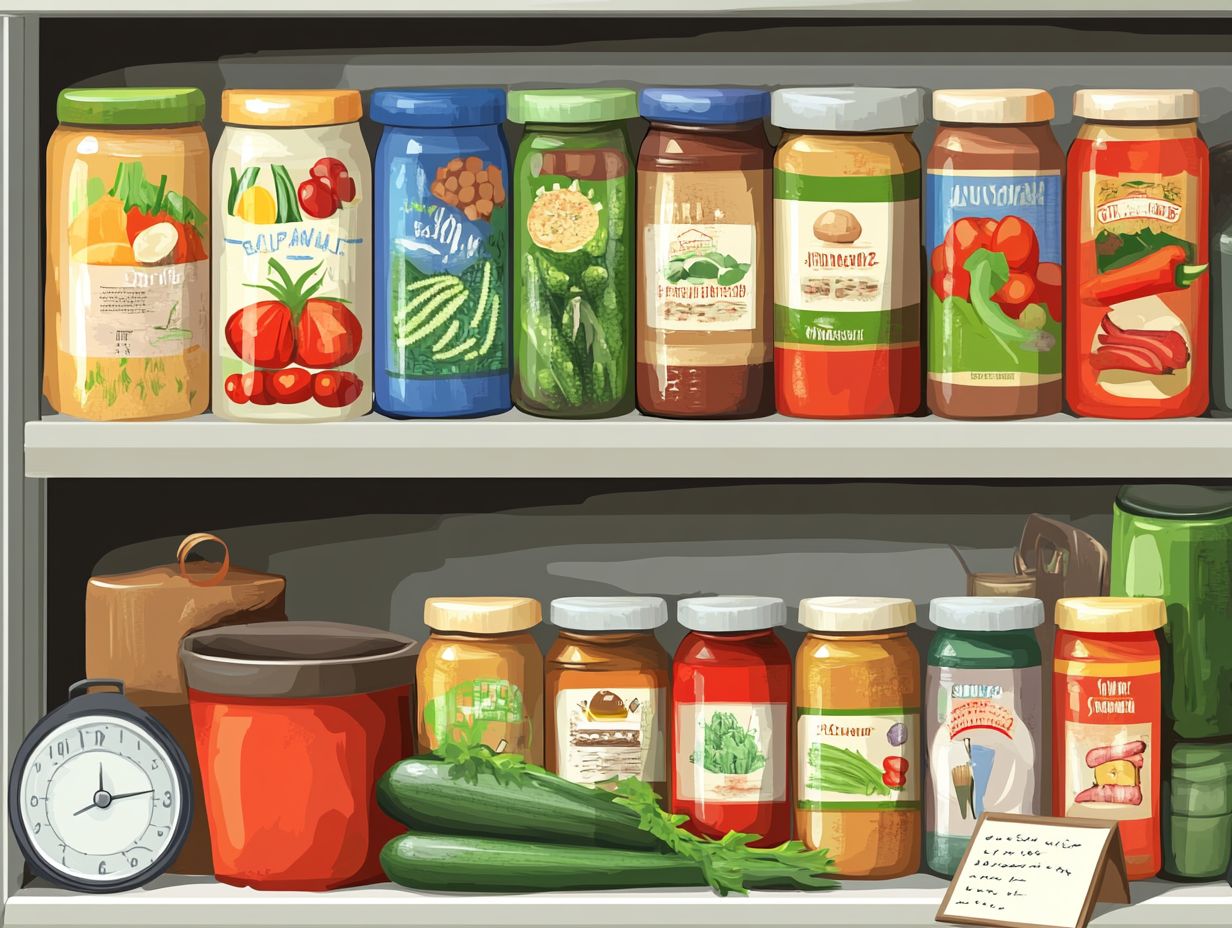
- Store canned goods in a cool, dry place and rotate them regularly.
- Check expiration dates before consuming.
- Use proper canning techniques to extend shelf life, like labeling and exploring alternatives such as freezing or pickling.
Understanding Shelf Life of Canned Goods
Knowing how long canned goods last is vital for food safety. It helps you preserve quality at home.
The type of food and how it’s canned matter. Storage conditions also affect safety and longevity.
Follow shelf-life guidelines to keep your food safe! Stay alert for signs of spoilage especially the risk of botulism, a serious illness caused by spoiled food, particularly in low-acid foods like canned tomatoes, pickles, and relishes.
Regularly inspecting your jars is crucial. Keep track of canned food dates to help you maximize their longevity.
Factors Affecting Shelf Life
Several key aspects influence the shelf life of canned goods, including your chosen storage methods and the best canning practices employed, as well as the nutritional value of the food itself.
The way you store canned items can greatly affect their longevity. For instance, keeping them in temperature-controlled environments helps prevent the degradation of flavors and nutrients, but it’s also important to know how to make sure canned food is safe.
It’s crucial to watch for spoilage signs such as unusual odors, texture alterations, or changes in color and appearance. These indicators signal that the product may no longer be safe for consumption.
By recognizing the importance of preserving fruits and vegetables, you not only extend their shelf life but also maintain quality. This ensures you enjoy nutritious, flavorful meals.
Optimizing Storage Conditions
Optimizing storage conditions for canned goods is crucial for prolonging their shelf life and ensuring food safety, especially with home-canned items. For more tips, check out information on preventing spoilage in your canned goods.
By paying attention to factors like temperature, humidity, and light exposure, you can significantly enhance the longevity and quality of your preserves.
Best Practices for Preserving Canned Goods
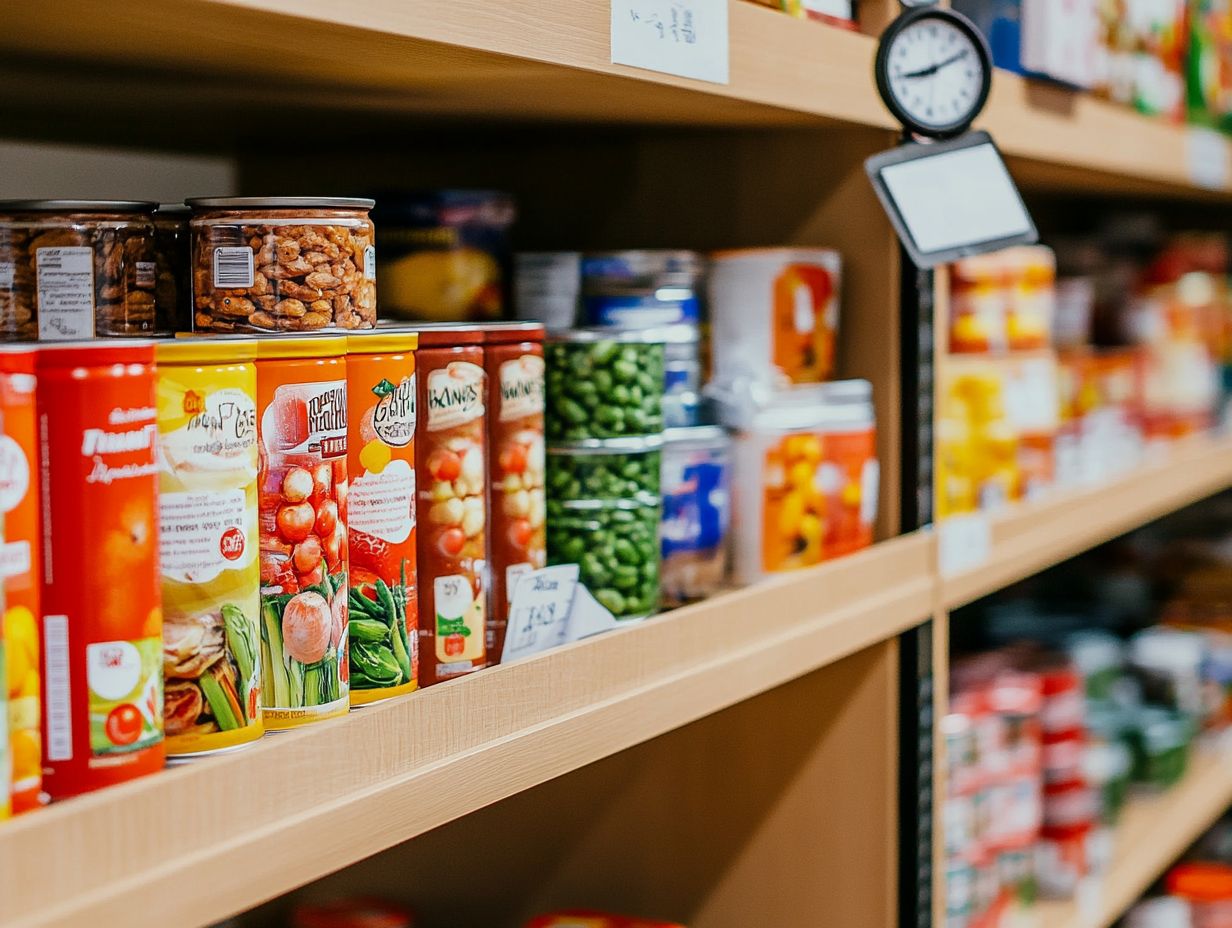
Employing best practices for preserving canned goods is essential for maintaining flavor quality and long-term safety. For instance, knowing how to store opened canned goods safely can help you utilize pressure canning and water bath methods, which are highly regarded in the food preservation community.
These techniques, endorsed by food safety experts, extend the shelf life of your foods while maintaining their nutritional integrity. For those interested in preserving food safely, knowing how to prevent mold in canned foods is crucial. Pressure canning is particularly effective for low-acid foods like vegetables and meats, effectively eliminating harmful bacteria.
In contrast, high-acid foods, such as fruits and pickled items, thrive under the gentler approach of water bath canning. While these methods preserve flavors beautifully, some changes in taste and texture may occur.
For example, the natural sweetness of fruits typically holds firm, while the firmness of vegetables might soften a bit. However, rest assured that the end result remains enjoyable and delicious.
Using Canned Goods Safely
To ensure the safe use of canned goods, you must follow essential food safety practices. This includes regularly inspecting jars and being vigilant about signs of spoilage, such as strange food smells or changes in texture.
Precautions for Consumption and Handling
Take precautions when consuming and handling canned goods. This helps prevent food safety issues and maintains food quality, particularly to avoid risks like botulism.
This involves adhering to several best practices. One crucial step is to always check expiration dates before making a purchase, as expired products can conceal harmful bacteria. Once you’ve opened a can, it’s vital to store any leftovers in airtight containers and refrigerate them promptly. For more information, refer to this guide on how to store canned vegetables. Ideally, you should consume these refrigerated items within a few days to ensure their safety and delight your taste buds.
Regularly inspecting canned goods for signs of damage, such as bulging or rust, can also help you identify potential hazards before they become health issues. Use these strategies in your routine to enjoy canned goods safely while keeping safety risks at bay.
Extending Shelf Life of Canned Goods
Extending the shelf life of canned goods requires you to use good storage methods and master techniques for keeping food fresh. Learning how to store canned goods for maximum shelf life ensures that both quality and safety are maintained.
Tips for Prolonging Storage Time
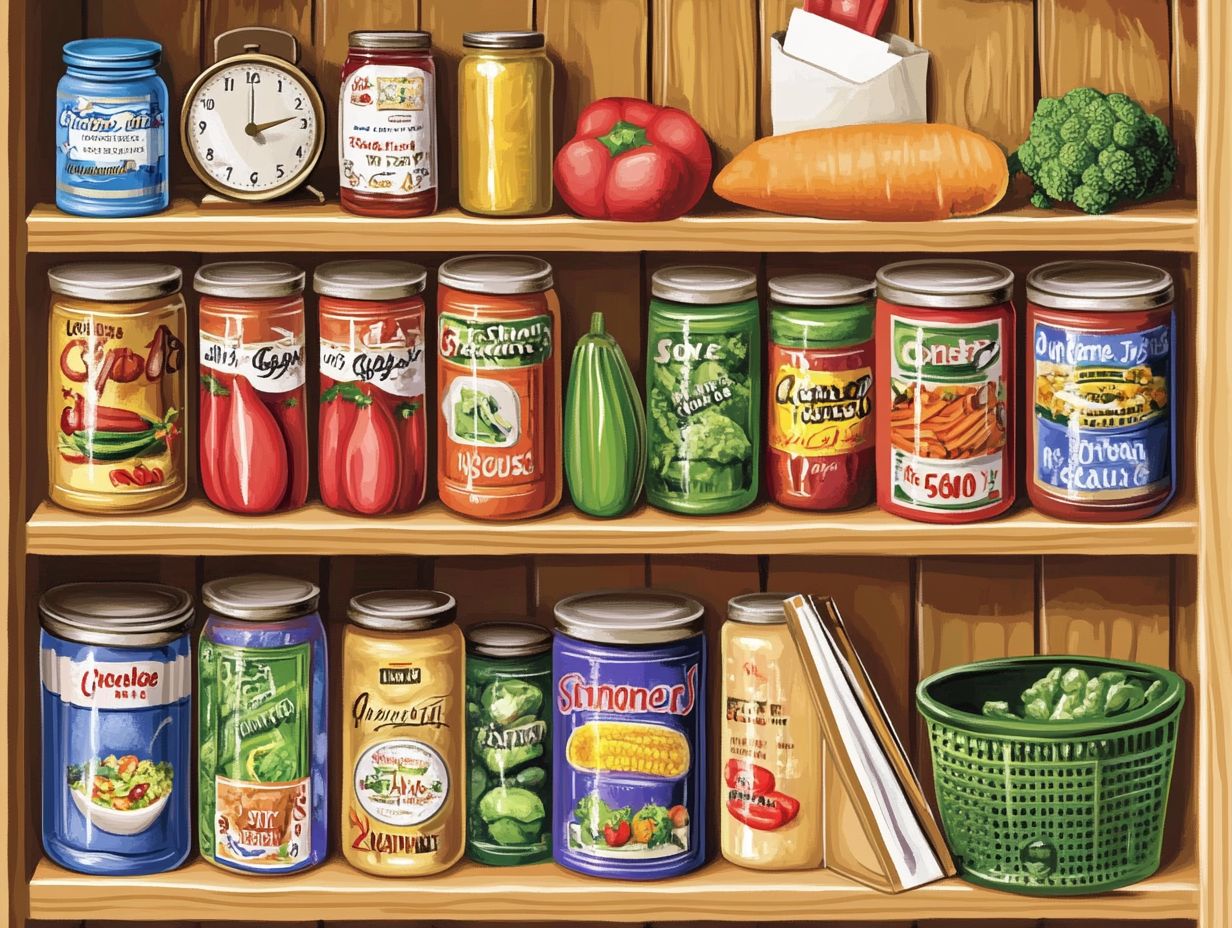
Implement specific strategies for prolonging storage time. This can significantly enhance food quality and ensure you stay compliant with food safety guidelines to prevent quality decline.
By carefully controlling storage conditions, such as keeping your canned goods in a cool, dry place away from direct sunlight, you can markedly reduce the risk of deterioration. For more detailed information, check out how to store canned goods properly. It’s vital to maintain consistent temperatures; any fluctuations can compromise seals and lead to spoilage.
Regularly check the longevity of your canned foods, including examining expiration dates and looking for signs of damage or bulging. This ensures that you only consume safe products.
These practices help preserve the integrity of your food and foster a healthier lifestyle by preventing food waste and adhering to proper cooking techniques, ensuring that your meals remain both delicious and safe to enjoy.
Alternatives to Canned Goods
Discover fun alternatives to canned goods! This allows you to explore a range of food preservation methods that not only enhance nutritional value but also improve food texture. This journey opens up a world of diverse storage options, enriching your culinary experience.
Exploring Other Food Preservation Methods
Exploring various food preservation methods like freezing, dehydrating, and fermenting opens up a world of options for maintaining food quality and extending shelf life. These techniques not only prevent spoilage but also retain nutritional value, all while introducing unique flavors and textures to your meals.
Freezing is one of the easiest methods at your disposal, allowing you to store seasonal produce by halting enzymatic reactions. Just remember to use airtight containers to keep freezer burn at bay.
Dehydrating takes a bit more time and requires some specialized equipment, but it rewards you with lightweight snacks and an extended shelf life. Just keep in mind that it may alter the taste profile of some foods.
Fermenting adds a delightful tanginess to your dishes and packs in beneficial probiotics. However, it demands careful temperature and environmental control to ensure safety.
By incorporating these preservation strategies into your routine, you can relish diverse culinary experiences while minimizing food waste and sharing recipe tips with others.
Frequently Asked Questions
What are the best ways to make canned goods last longer?
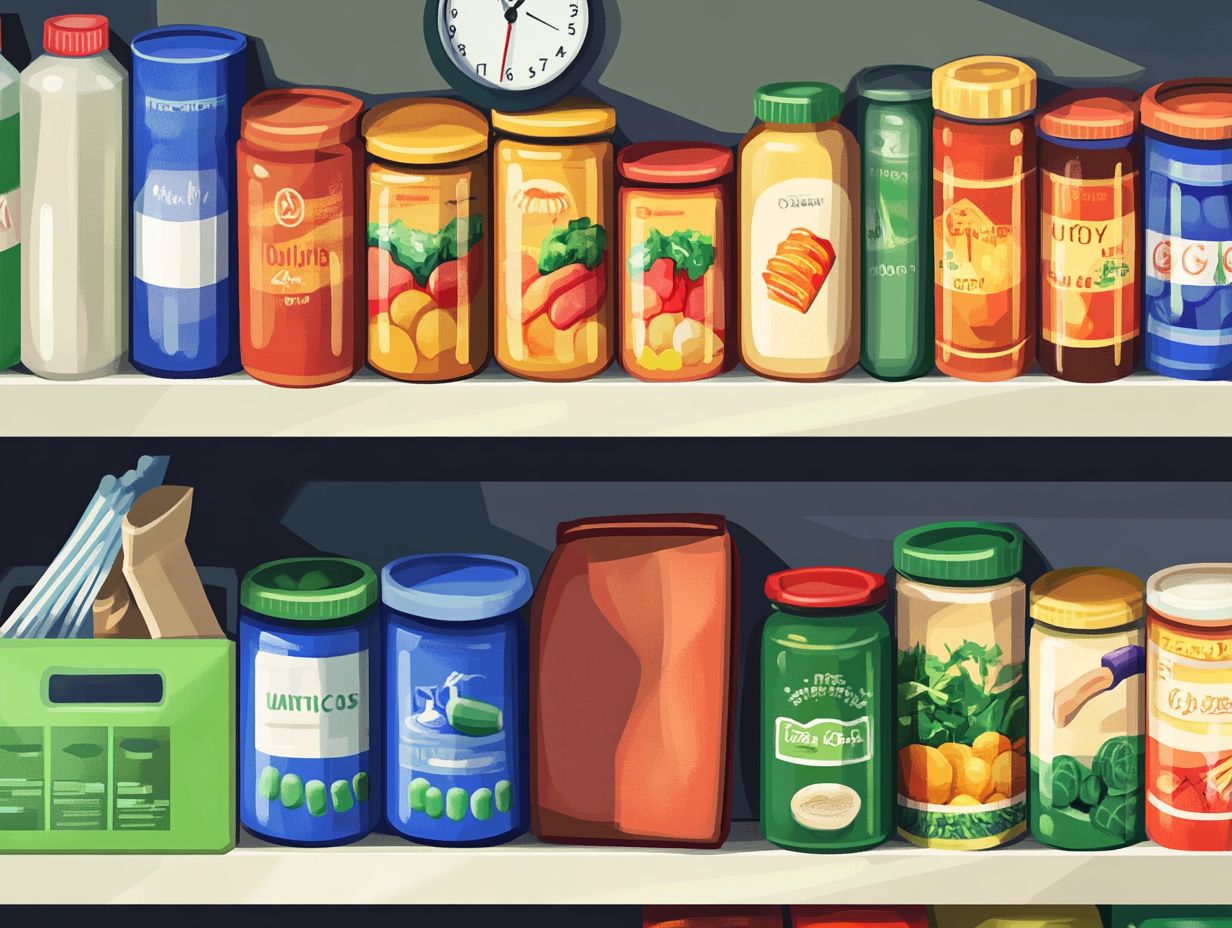
Proper storage and rotation are key to extending the shelf life of canned goods. To learn more about effective methods, check out how to properly store canned foods. Keep them in a cool, dry place and use the oldest cans first.
How can I determine the expiration date of canned goods?
Most canned goods have a “best by” date. This date is an estimate of when the food may start losing quality.
However, if the can is dented, rusted, or bulging, it should be discarded regardless of the expiration date.
Does the type of canned goods affect its shelf life?
Yes, acidic canned foods like tomatoes and citrus fruits have a shorter shelf life. Non-acidic foods like beans and vegetables last longer.
It is important to consume acidic canned goods within a year for optimal quality.
Is it safe to eat canned goods past their expiration date?
In most cases, consuming canned goods past their expiration date is safe. Just make sure the can is intact and the food looks, smells, and tastes normal.
It’s always best to follow the expiration date for the best quality.
How can I prevent spoilage in canned goods?
To prevent spoilage, check the seal and condition of the can before buying. If the seal is broken or the can is damaged, do not consume the food.
Avoid storing cans in areas with extreme temperatures or direct sunlight.
What are some signs that canned goods have gone bad?
Spotting discoloration, a foul odor, or an unusual texture? It’s time to toss those cans!
If the food bubbles when opening the can, don’t eat it this could mean bacteria are growing!
